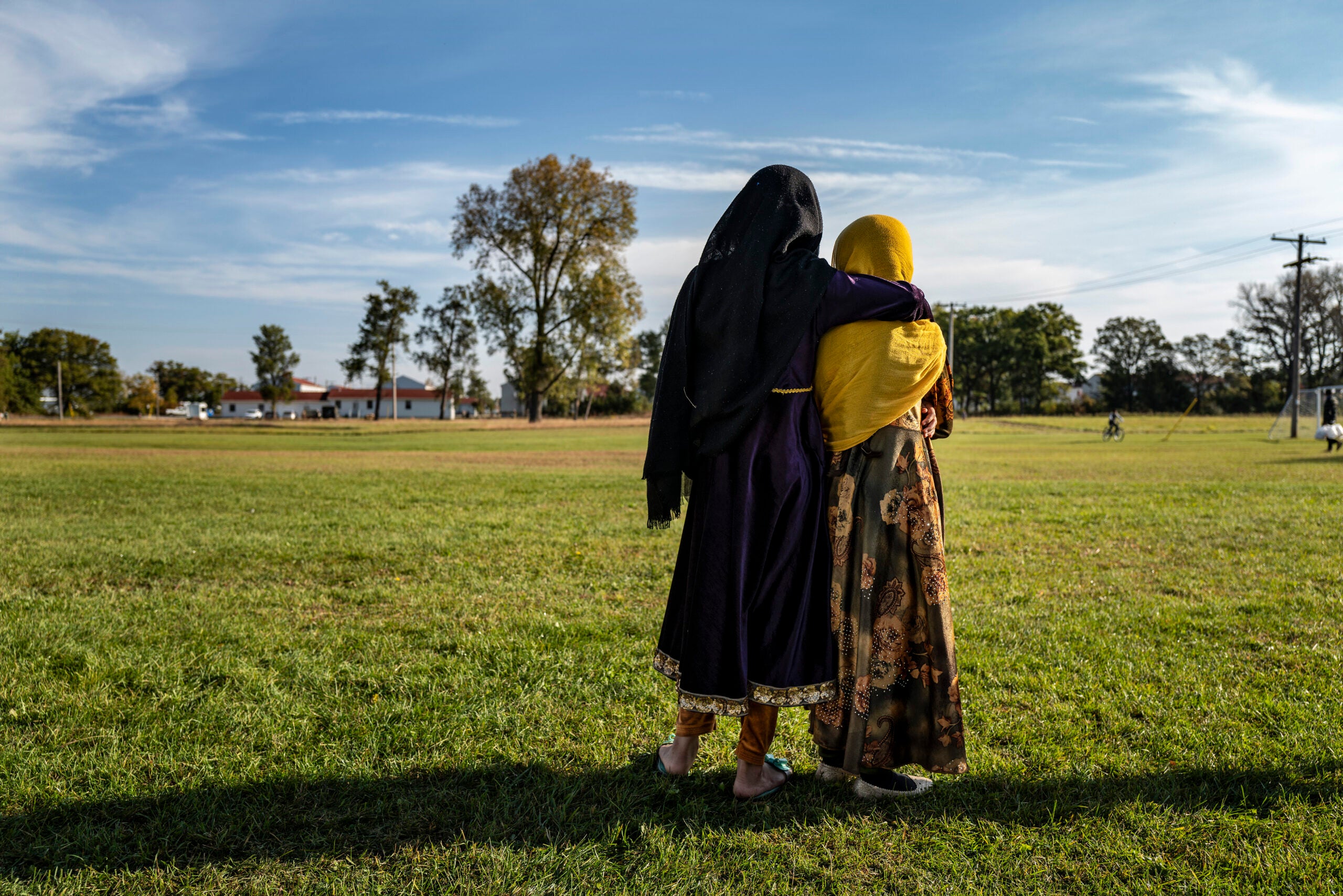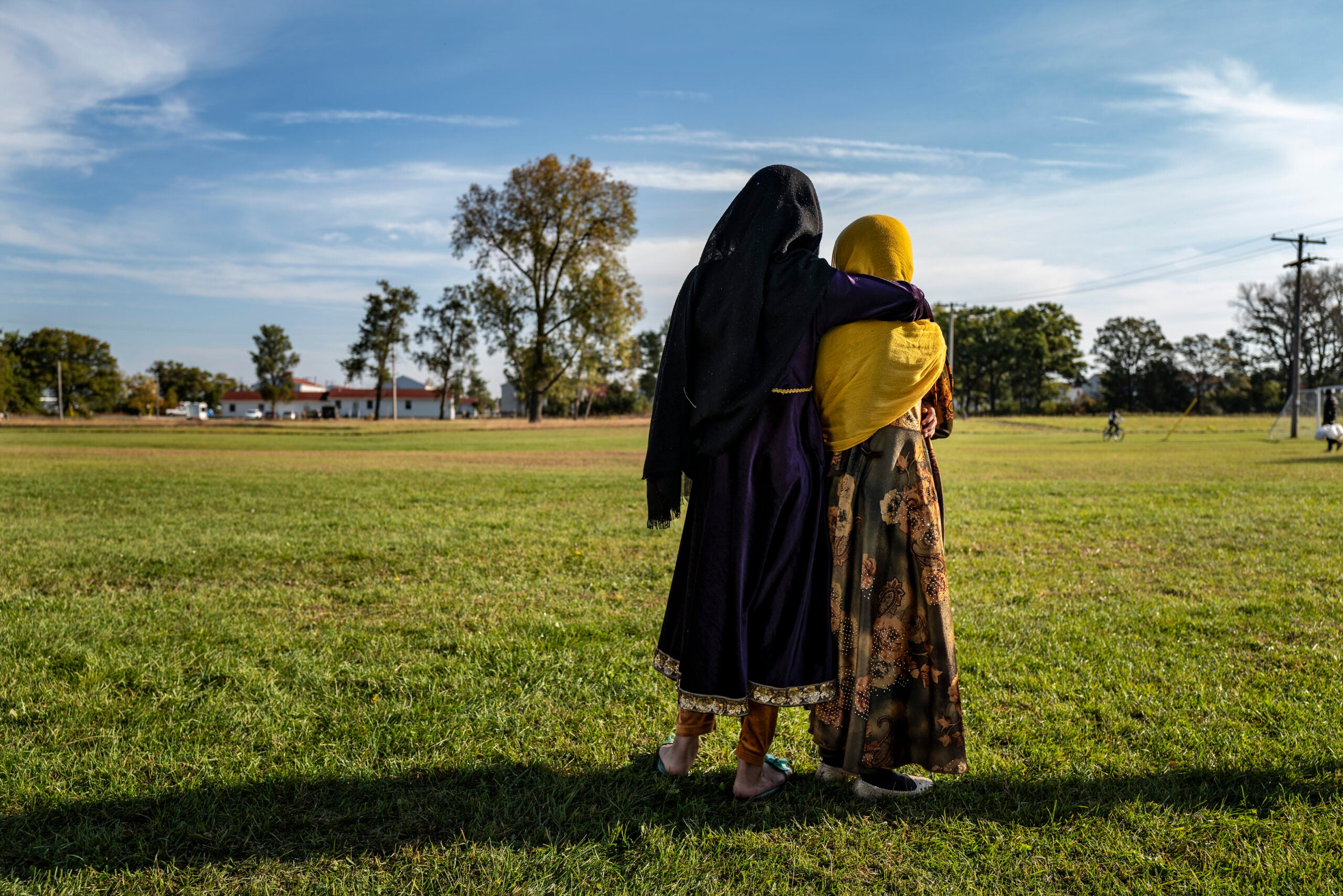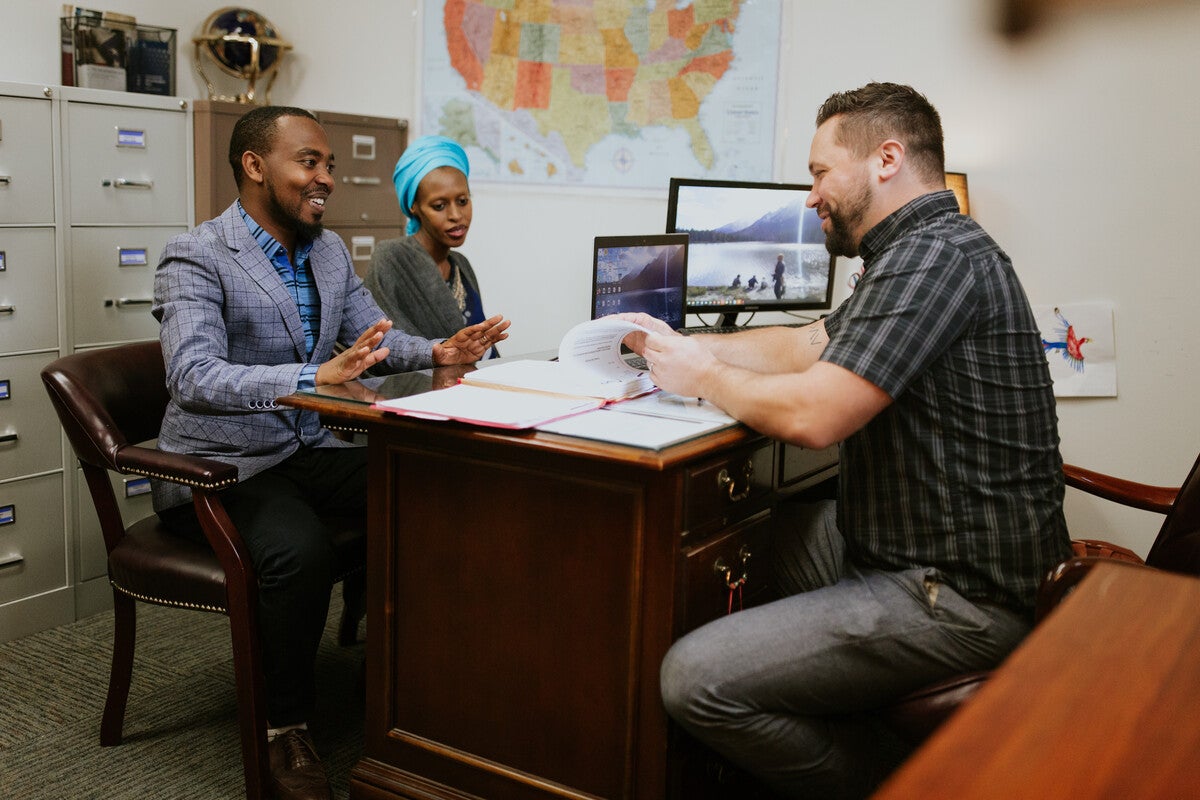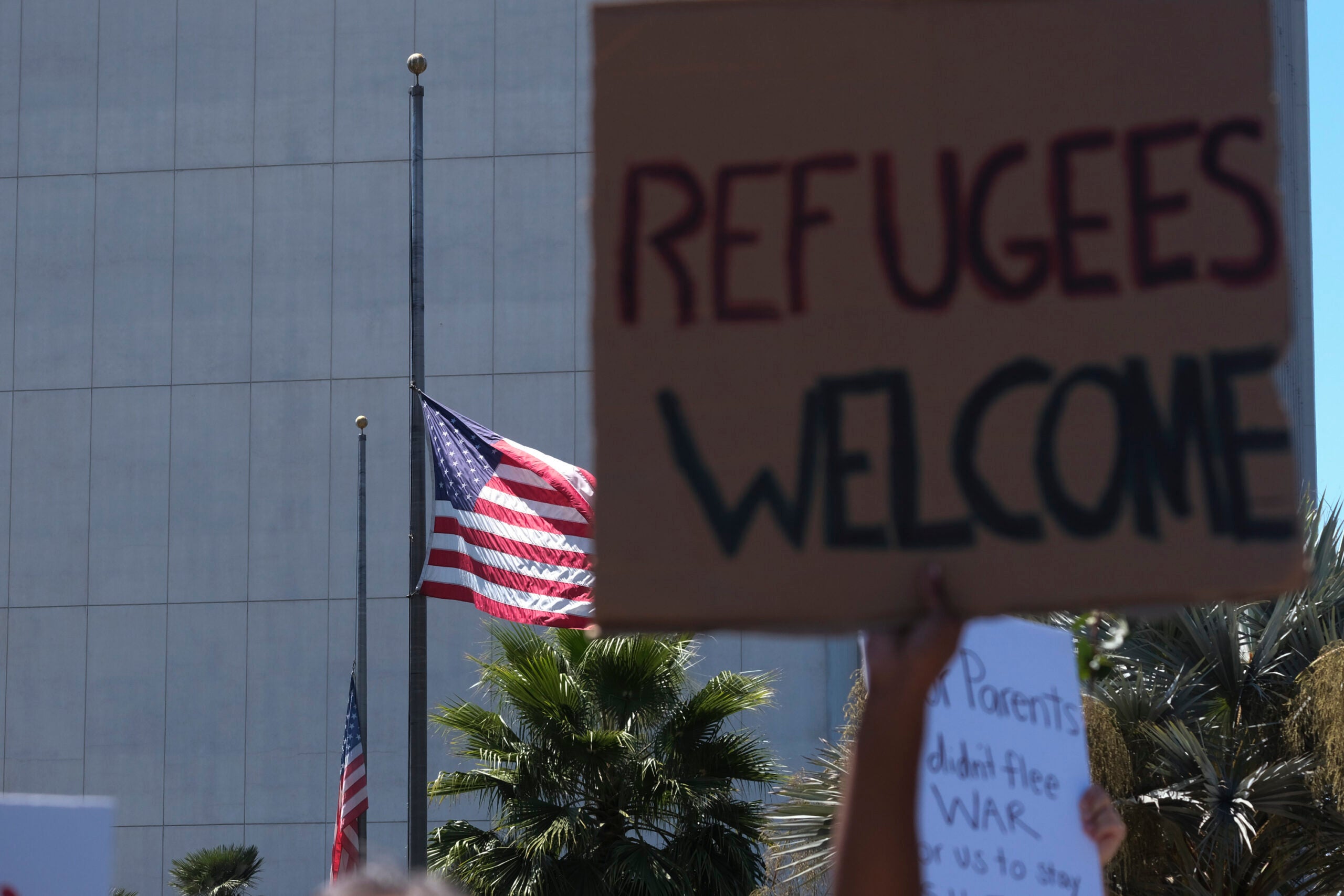More than 12,000 Afghan refugees escaped Taliban forces in 2021 during the withdrawal of American troops and were evacuated to Fort McCoy in Monroe County, according to the U.S. Department of Defense.
Two years later, the work of resettling Afghan refugees continues in Wisconsin and around the country. On Wisconsin Public Radio’s “The Morning Show,” the head of one local agency recently discussed its efforts and challenges ahead.
Kai Yael Gardner Mishlove, executive director of Jewish Social Services of Madison, said the agency had resettled about 165 Afghan refugees since October 2022, the start of its current fiscal year.
News with a little more humanity
WPR’s “Wisconsin Today” newsletter keeps you connected to the state you love without feeling overwhelmed. No paywall. No agenda. No corporate filter.
The following was edited for clarity and brevity.
Kate Archer Kent: What are typical challenges of Afghan refugees settling in Wisconsin?
Kai Yael Gardner Mishlove: They’re dealing with trauma due to what they’ve come from, the instability, the migration and abuse that they’ve suffered. As they’re settling into their new homes, we are tasked with helping them mitigate that and helping them make a new home in a way that they feel welcome.
Some of the challenges that we’re facing in Dane County specifically are related to housing and transportation… Of those families that we’ve resettled, we’ve had many challenges due to Dane County facing an increase in rental costs. Afghan families are typically coming with larger families. We have a scarcity of available and affordable housing. That’s number one on our list.
We have families who are coming in where they do not speak English or very minimal English. We’re also tasked with making sure we connect them to literacy providers so that they can receive (English language) services.
KAK: What resettlement support is there for trying to find a new community?
GM: We handle refugee resettlement from a point of resilience. Remember that the refugees that we’re seeing are about 1 percent of those who were able to make it out. These are folks who are coming with a lot of resilience, a lot of strength. However, they may not know the current culture. It’s important for us to connect new, incoming refugees with communities that are similar or a part of their own culture.
At the same time, we promote creating new community. We set up our new, incoming refugees with mentors. Mentoring is a two-way street, because we feel that refugees have just as much to share with us as we do with them.
KAK: How are resettlement organizations able to help families move to different places?
GM: The resettlement process involves one of the nine resettlement agencies based in Washington, D.C. They make decisions of where to send refugees throughout the U.S. Those agencies are called VOLAG, which stands for voluntary resettlement agency.
(Jewish Social Services of Madison) is an affiliate of the Hebrew Immigrant Aid Society, the oldest refugee resettlement agency in the country. HIAS, along with the other eight resettlement agencies in D.C., will decide which city they will send a refugee.
They take into account the housing and the economic availability in that city or state. But, at times it’s challenging, because in Madison, we have a lot of challenges related to housing.
We have a very robust volunteer network here. But we’re still subject to whatever the labor market is in our community. We’re doing the best that we can.
KAK: Over the summer, state lawmakers passed a $99 billion budget for the next two years. Does the state’s budget provide aid to resettlement efforts?
GM: We are recipients of funding from the Office of Refugee Resettlement. On the federal level, it’s filtered through our Hebrew Immigrant Aid Society. The national agency sends funding to us and also the Bureau of Refugee Programming at the Department of Children and Family Services.
Funding streams that we receive are for refugees, social services and career development. The RSS program, also known as Refugee Support Services, provides services for the entire family.
We’re going to look at each person in that family and figure out what do we need to do as far as connecting them with employment, with education and if they need some enhancement in that area, with career development.
In addition, other funding that’s available for behavioral health support is coming through our Bureau of Refugee programing. That’s very important because refugees are coming with trauma due to instability, migration, abuse and maybe inadequate care that they received at home. We want to decrease any kind of social isolation or loss of that social network that they might have had from their home country.
These are programs in the funding that we receive and also interpretation. It’s very important that we provide (interpretation) to them immediately so that they understand the new systems they’re in. Also make sure that we’re providing them with English as a second language services and referrals. That’s some of the funding that a lot of refugee supporting agencies are receiving from the state. It’s critical.
KAK: Over the summer, federal lawmakers reintroduced legislation to Congress aiming to establish permanent residency for Afghans who worked with Americans during the war in Afghanistan. The legislation has bipartisan sponsors. What are the challenges in gaining permanent residency?
GM: You have to remember that the Afghan community, and other communities are facing this too, such as the Ukrainian community. They’re coming in as parolees, meaning that they have temporary status. Our job is to make sure that we refer folks as soon as possible to legal services so that they can be assisted in becoming permanent residents.
It takes quite a bit of paperwork, quite a bit of time and quite a bit of coordination of services.Things are constantly changing regarding some of the regulations and rules. We really, really value our immigration partners who we refer to, especially in Dane County.
KAK: What do people in Wisconsin often misunderstand about the experiences of Afghan refugees?
GM: I found that the community in Wisconsin, for the most part, is extremely supportive of refugees. But there’s also always more work to do. I think that some of the misunderstanding, if it occurs, occurs because we’re looking at things through our own lens of being a Wisconsinite or being an American. We may miss some of the nuance involved with a new culture trying to acclimate.
I think the most important thing for our community to understand is that refugees are coming with resilience but also coming with trauma. If we are able to assist them in navigating the system, we’re also able to assist others in navigating systems.
Refugees are resettled often in communities where there may be pre-existing disparities. They may highlight some of the disparities that we may not have been paying attention to, so it’s very important that we always look at this work. It takes a village to welcome newcomers in a way that respects their culture and in a way that recognizes the resilience that they have.
Wisconsin Public Radio, © Copyright 2025, Board of Regents of the University of Wisconsin System and Wisconsin Educational Communications Board.





